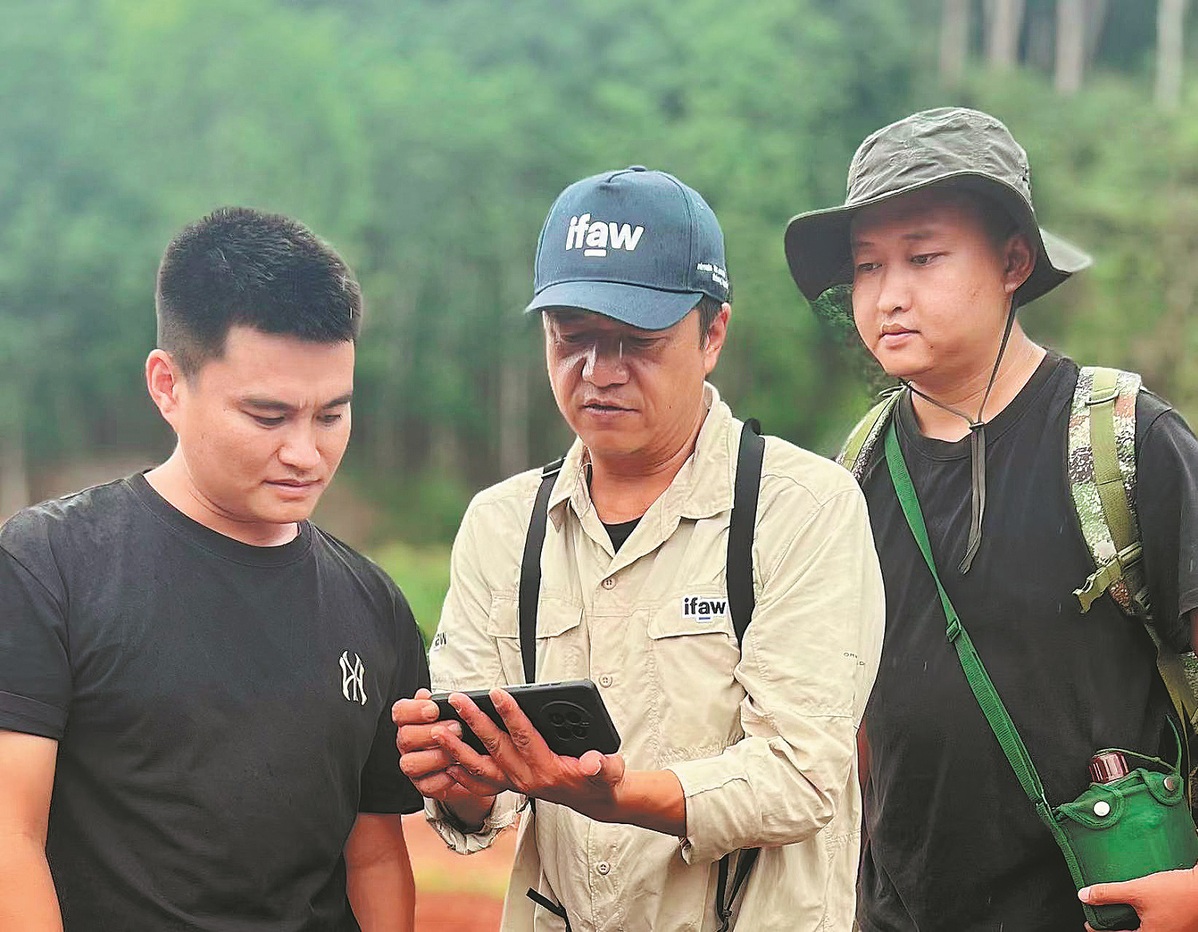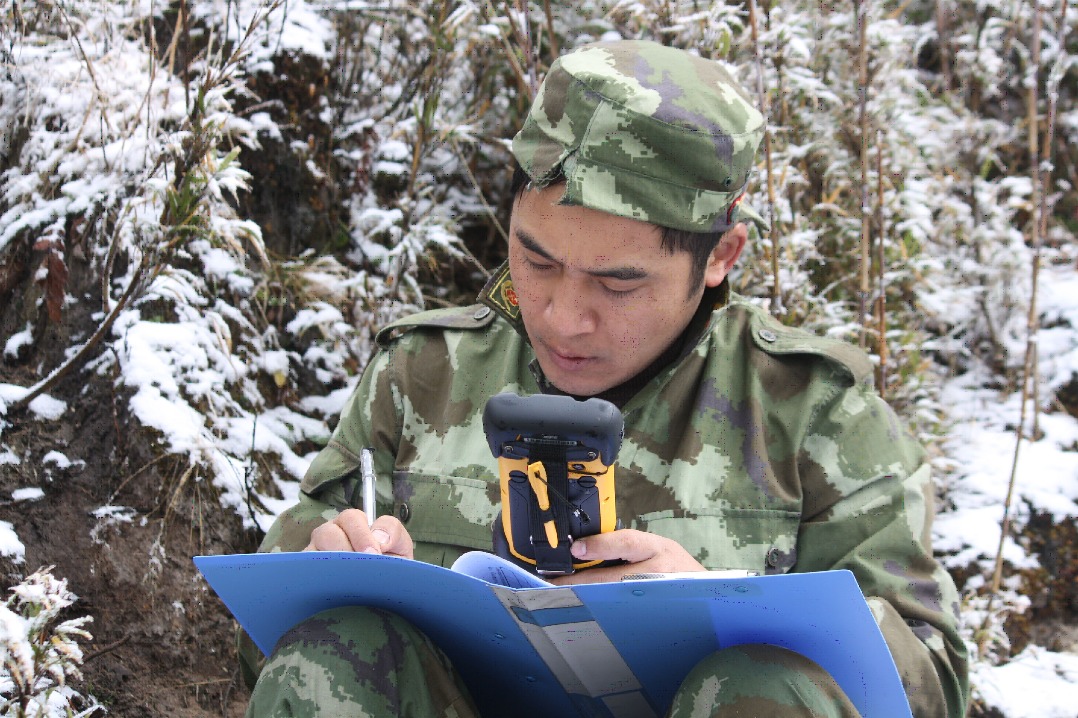Trackers ensure public remains aware of risks


In Mengla county, within Xishuangbanna Dai autonomous prefecture of Yunnan province, few people face a job as demanding as that of Luo Chenhou and Yan Guan. Tasked with using drones equipped with infrared cameras to monitor the activities of wild Asian elephants around the clock seven days a week, their commitment is unwavering.
"We often find ourselves aligning our schedules with the elephants'," Luo, 31, told China Daily in the office of the Mengla forestry and grassland bureau in the county seat. "Beginning our day in the wilderness around 8 to 9 in the morning, our work typically extends until the early hours of the following day, around 1 or 2 in the morning. Our break only comes when the elephants choose to rest in the forest."
As members of Mengla's Asian elephant monitoring team, Luo and Yan are part of a dedicated group of 16 individuals entrusted with overseeing the activities of over 120 wild elephants in the county. Their responsibilities include documenting essential information about elephant herds such as their whereabouts, group sizes and behaviors. The data is then relayed to the bureau, which disseminates it to local communities and residents through various communication channels such as radio broadcasts, loudspeakers or mobile messaging.
Living in the county seat, Luo and two of his colleagues form a subgroup that alternates shifts to journey to the elephant activity sites. Their departures are guided by information provided by local communities or estimations derived from the previous day's surveillance efforts.
When the elephants venture into the fields to forage, Luo said, he and his team employ a drone to maintain continuous surveillance of their movements.
"If the elephants return to the forest, away from villages and people, we don't bother them and can have a break," he said.
In the scenario where the elephants enter a rubber plantation, Luo and his team must take immediate action. "The harvest season has started this month, and villagers are preoccupied in the rubber tree forests," Luo said. "The likelihood of them encountering the elephants at close quarters is increasing. We must alert the villagers before such incidents occur to ensure their safety and prevent potential conflicts."
"Sometimes villagers will gather to watch the elephants," he said. "We will persuade the people to leave at once."
Yan, a 25-year-old from the local Dai ethnic group, joined the team four years ago. He and another team member are responsible for monitoring a herd of 16 elephants mainly found in and around the county's Mengman township.
He said that the local people have become familiar with the elephants' existence in their lives and will usually follow their suggestions to keep a distance from the animals.
The elephants are smart, too, he said. "Except during the mating season, they are mild and tolerant to people's appearance," Yan said.
As a result, he said, he has never met any real danger while working in the field.
From their monitoring work, Luo and Yan earn 3,000 yuan a month.
"It's truly important work," Luo said. "It can help people avoid potential dangers while encountering wild Asian elephants."
- 'Bauhinia Cup' ignites patriotism among Hong Kong students on PRC's 75th anniversary
- Over 50,000 in China's Hainan evacuated as Typhoon Trami grows
- Xi congratulates Chapo on election as Mozambique's president
- 5.5-magnitude quake hits China's Xinjiang: CENC
- 2024 China International Digital Economy Expo highlight digital industrialization achievements
- Deliberately dodging fact of Taiwan's return to China exposes Lai's nature of seeking 'independence': mainland spokesperson




































